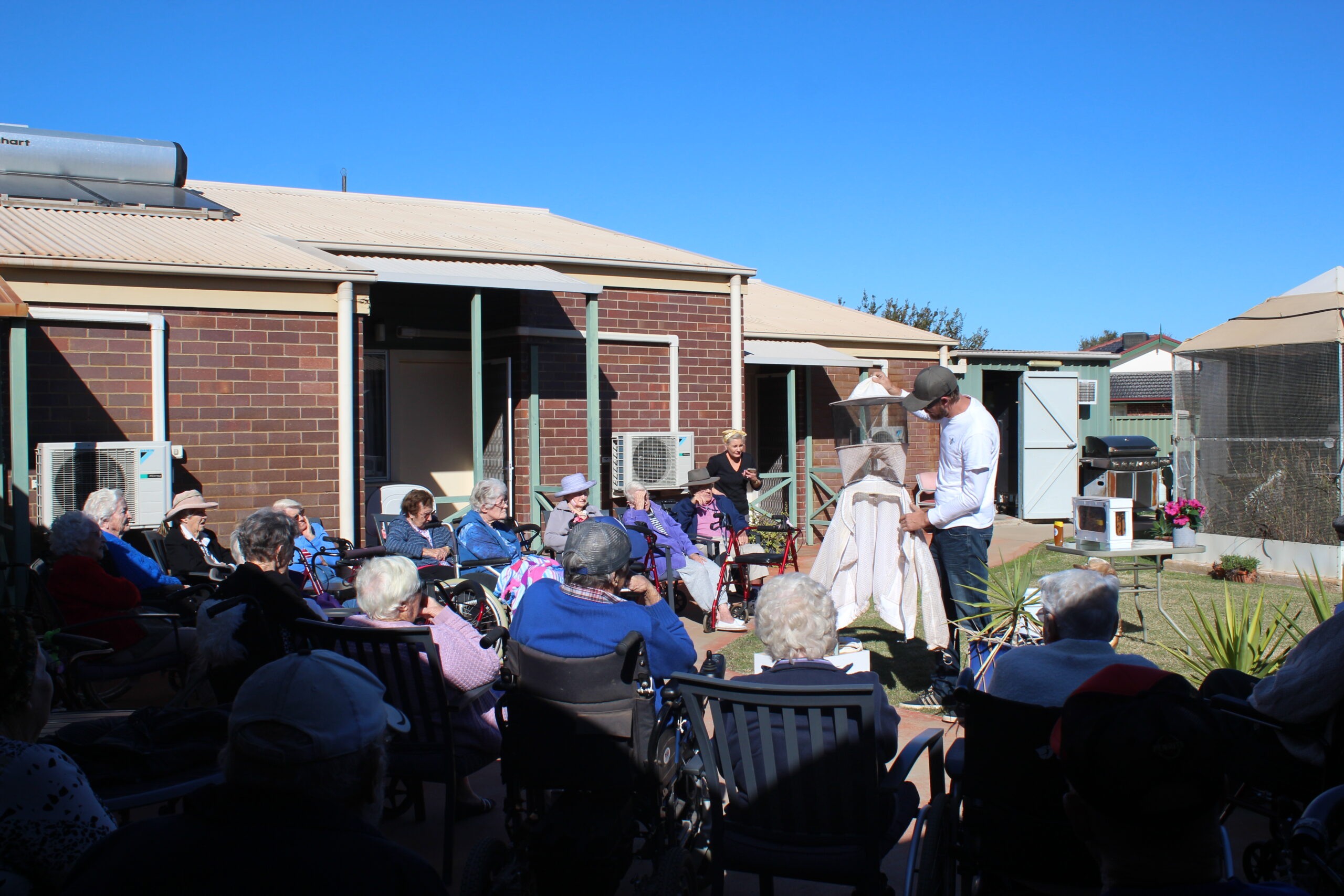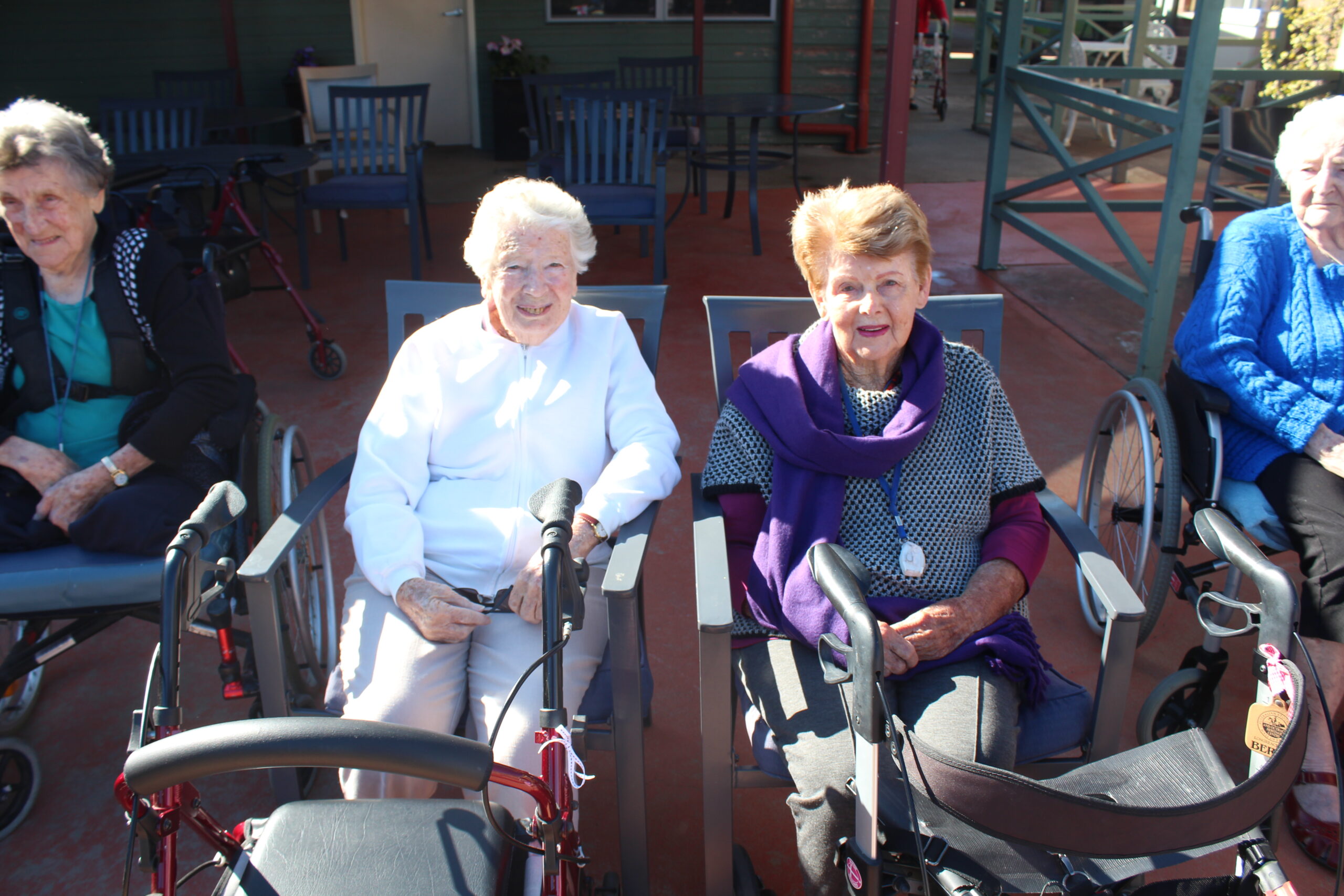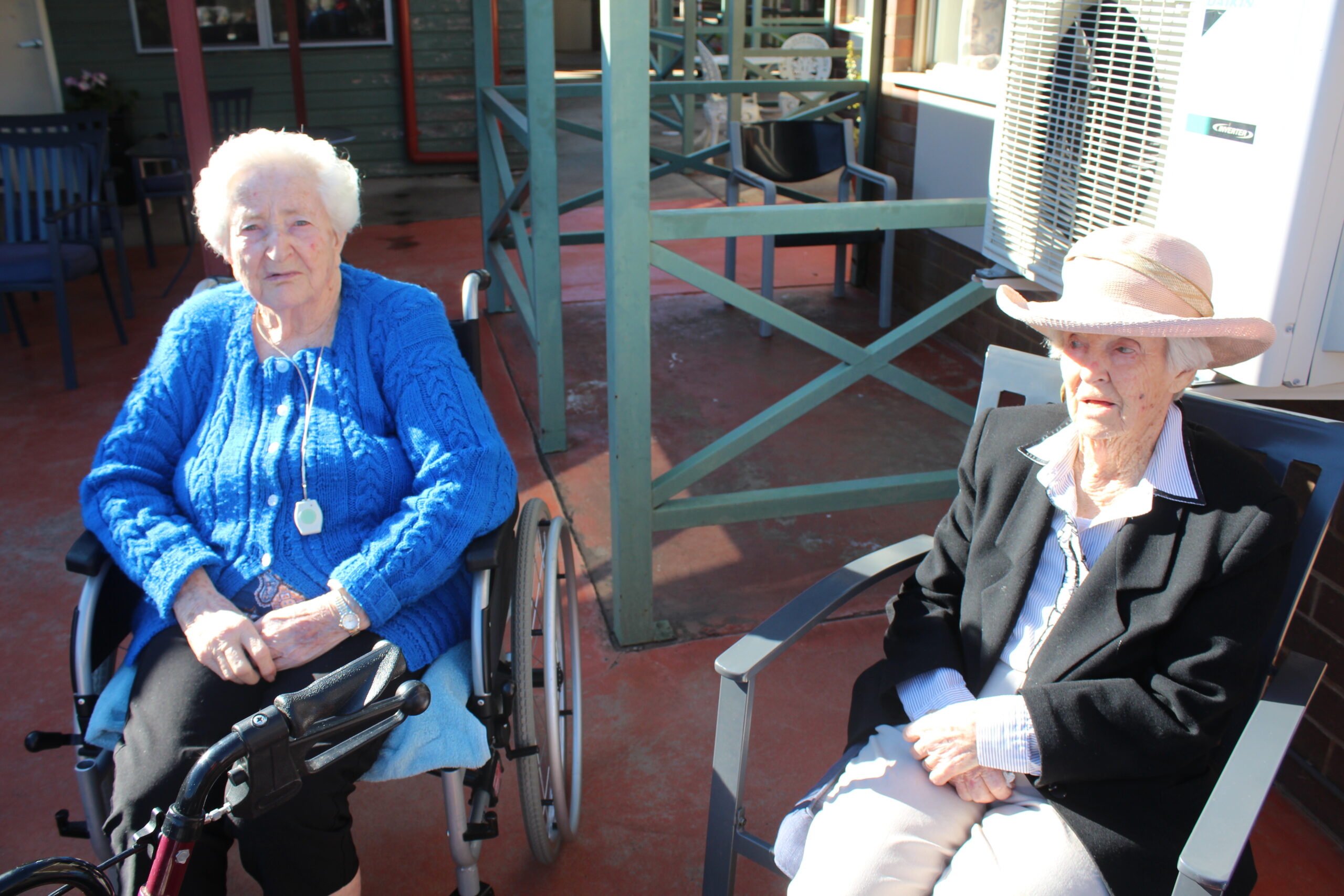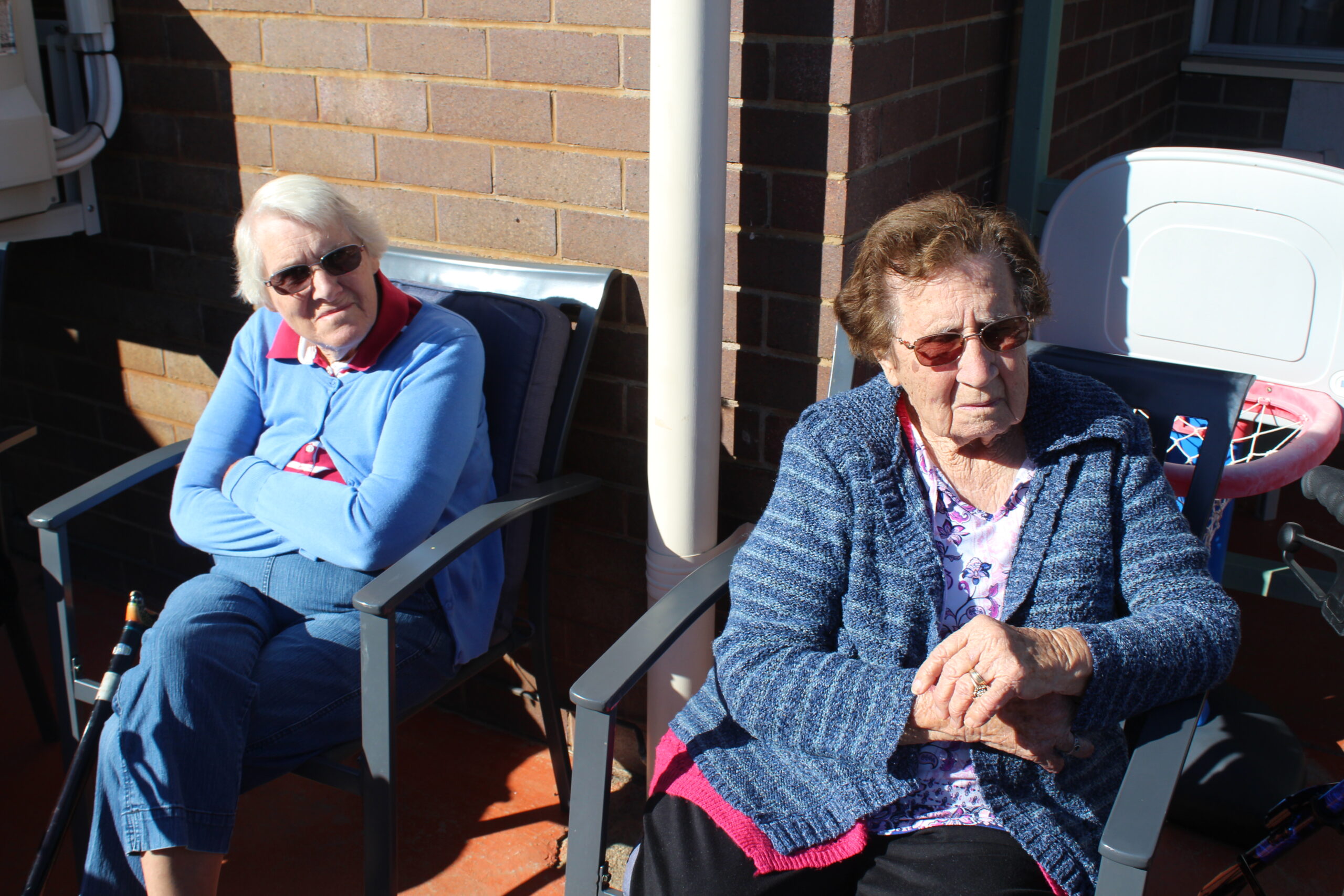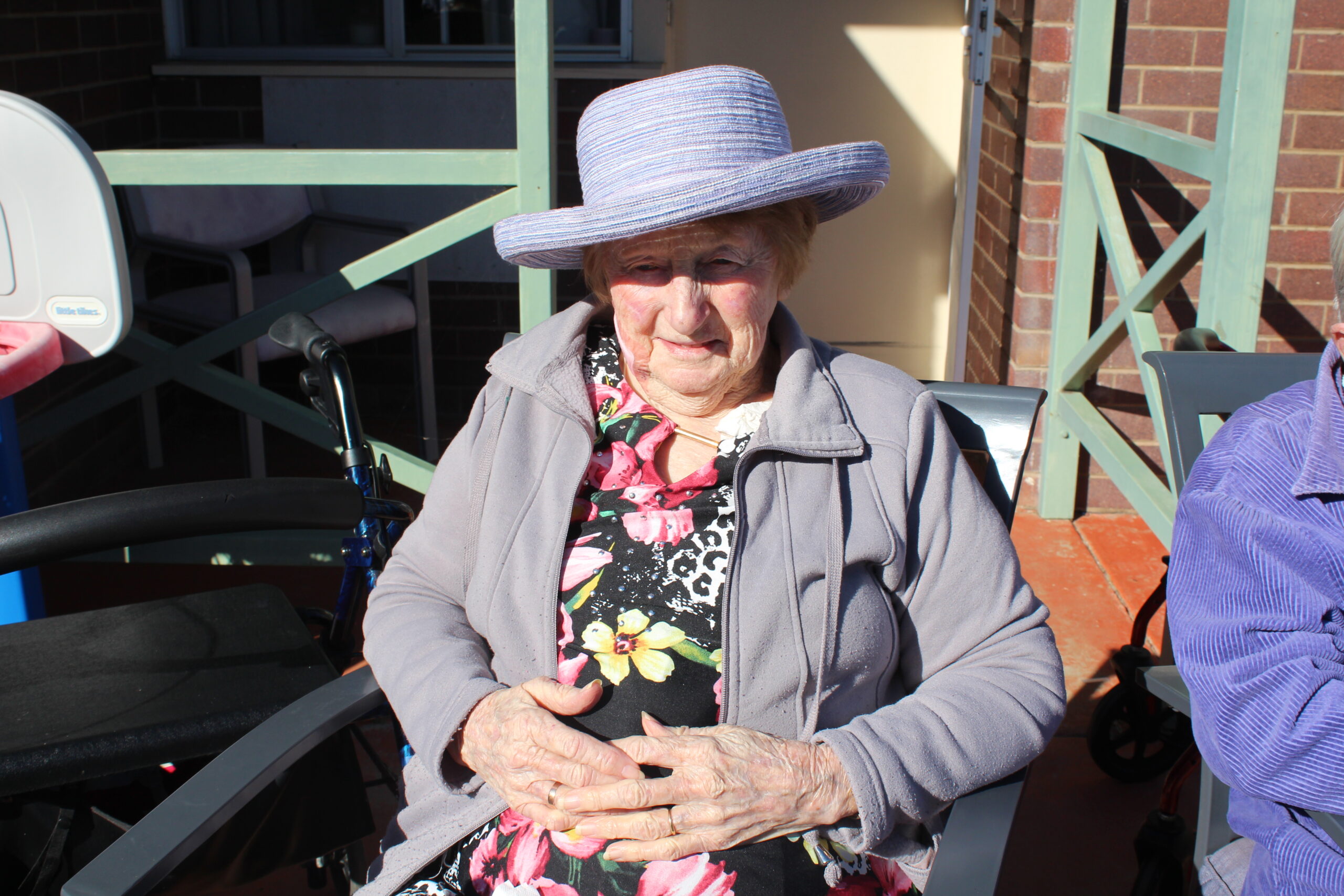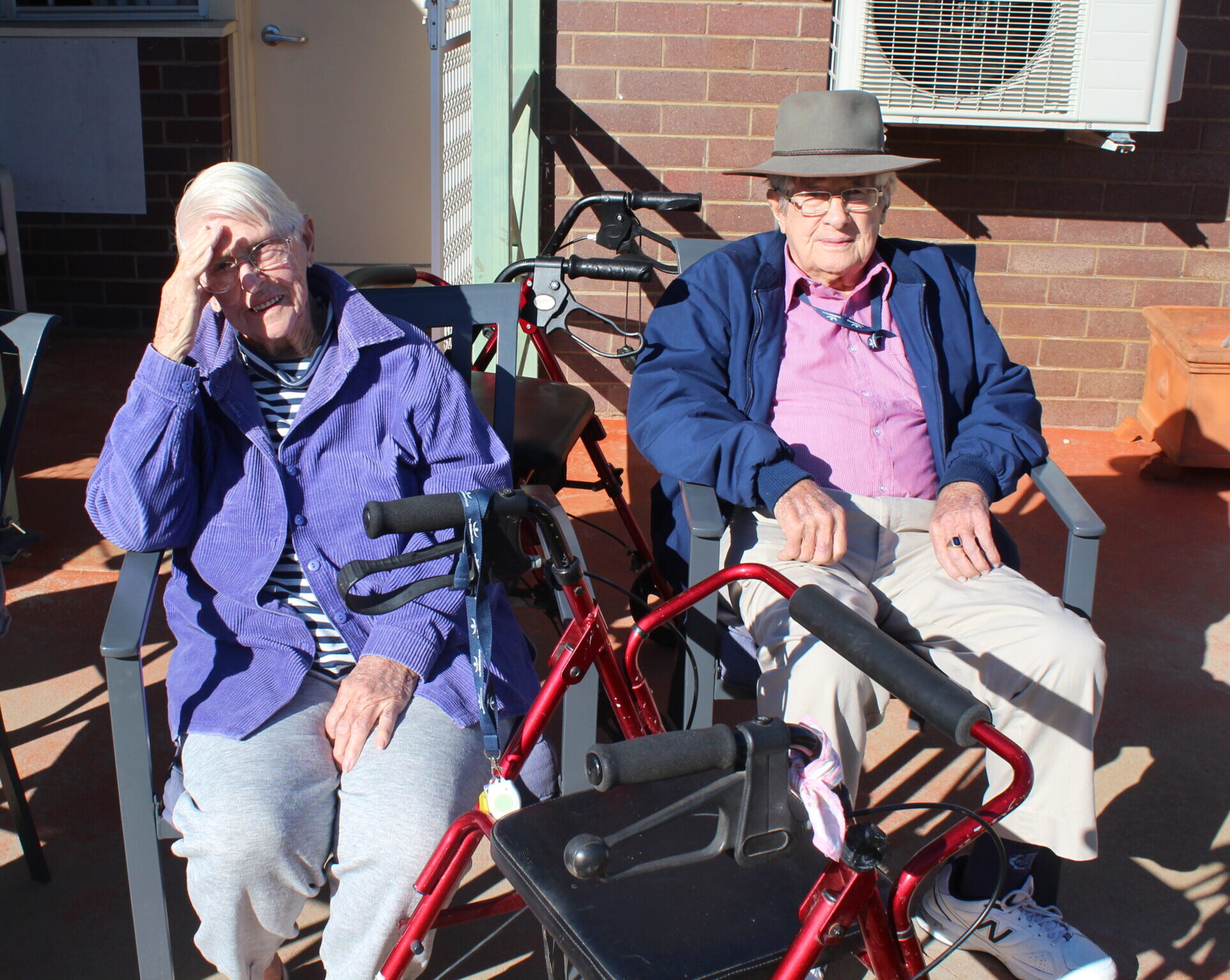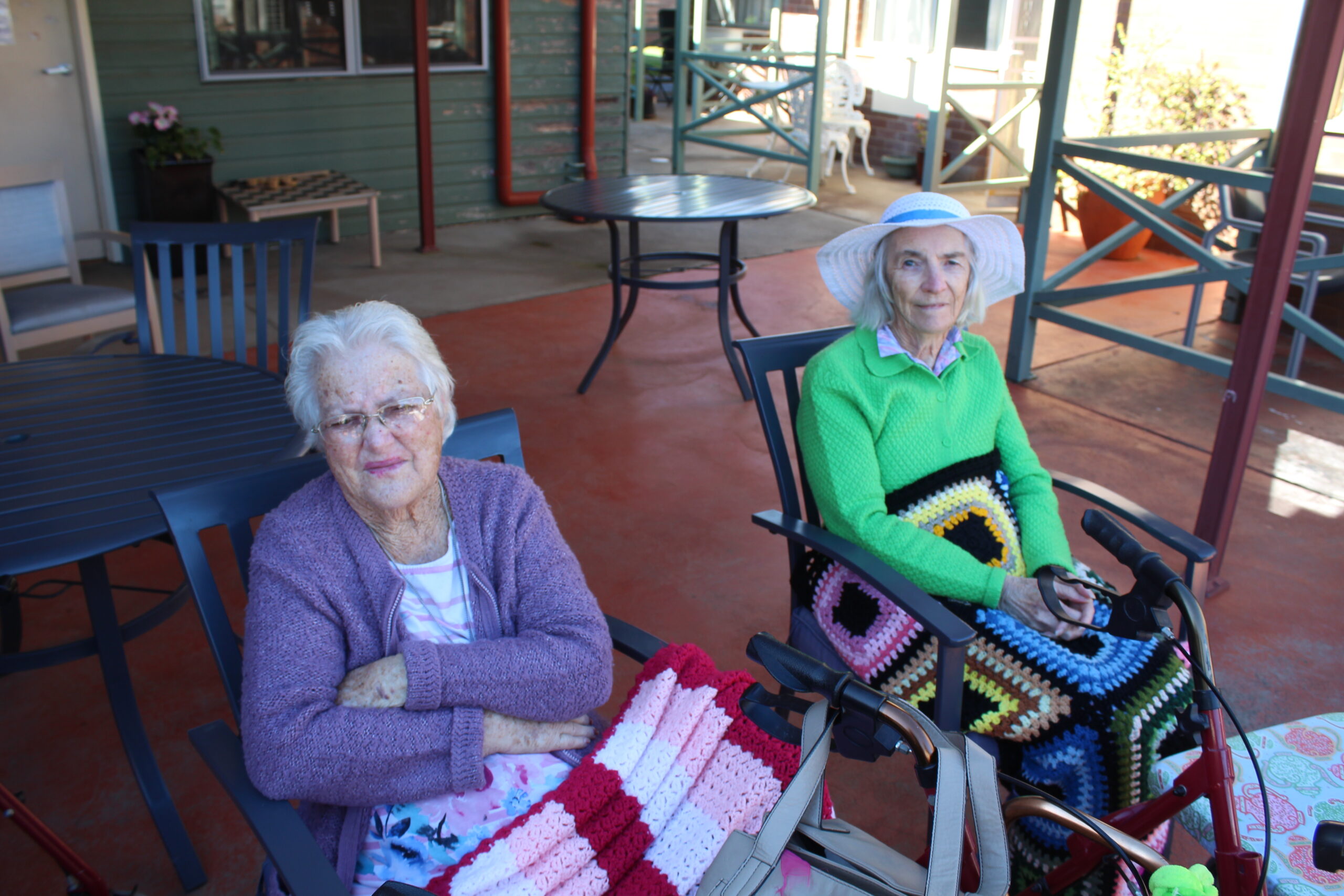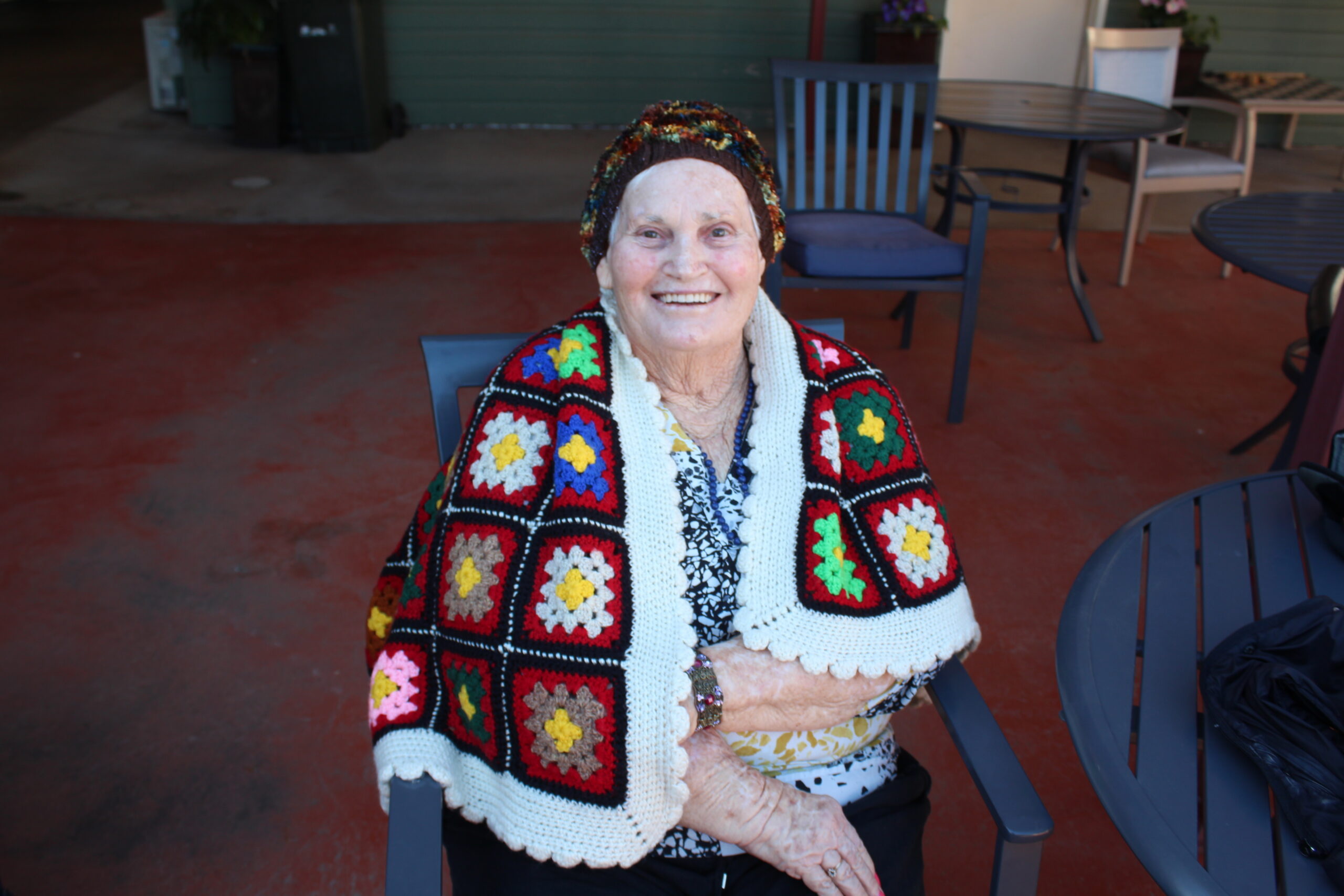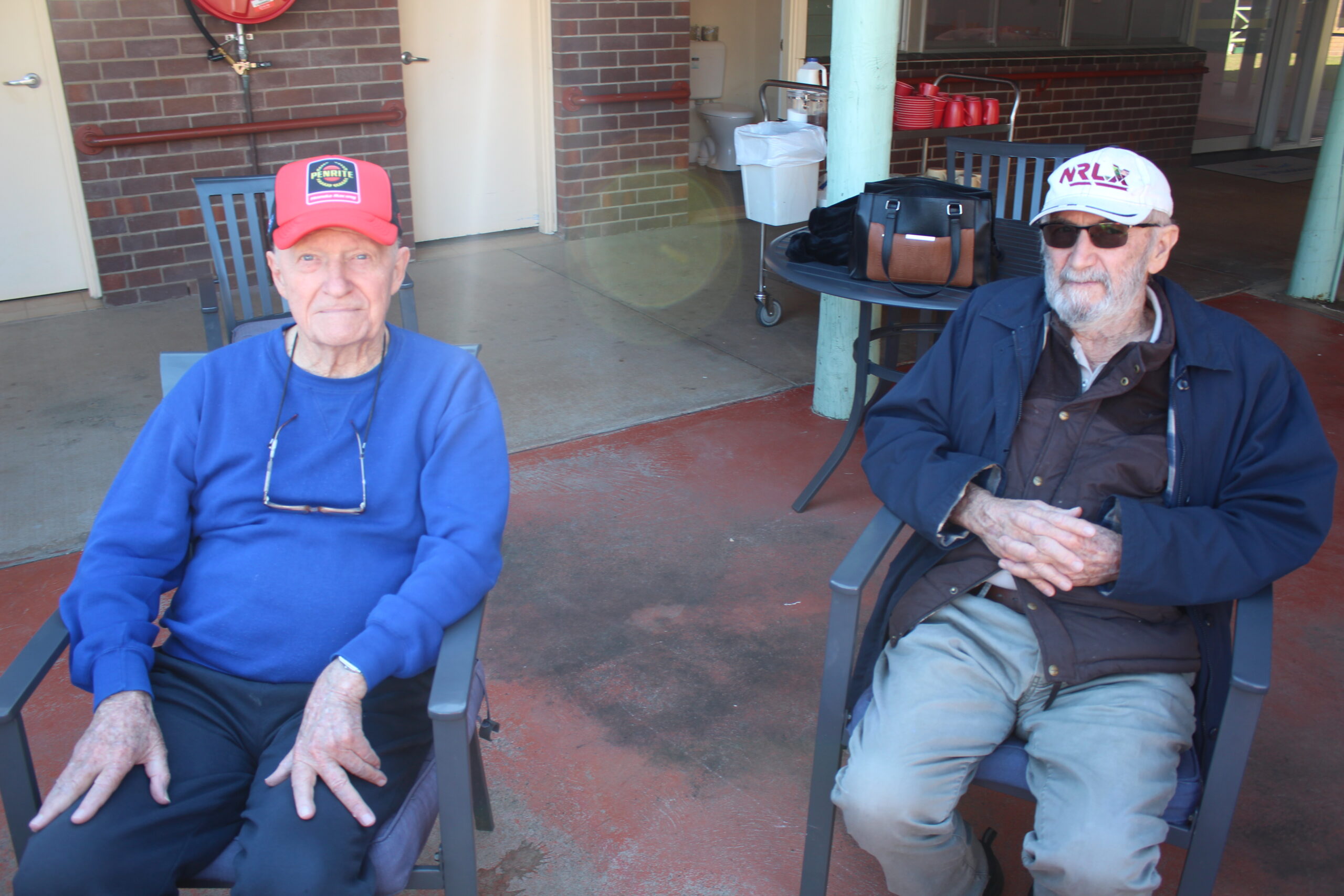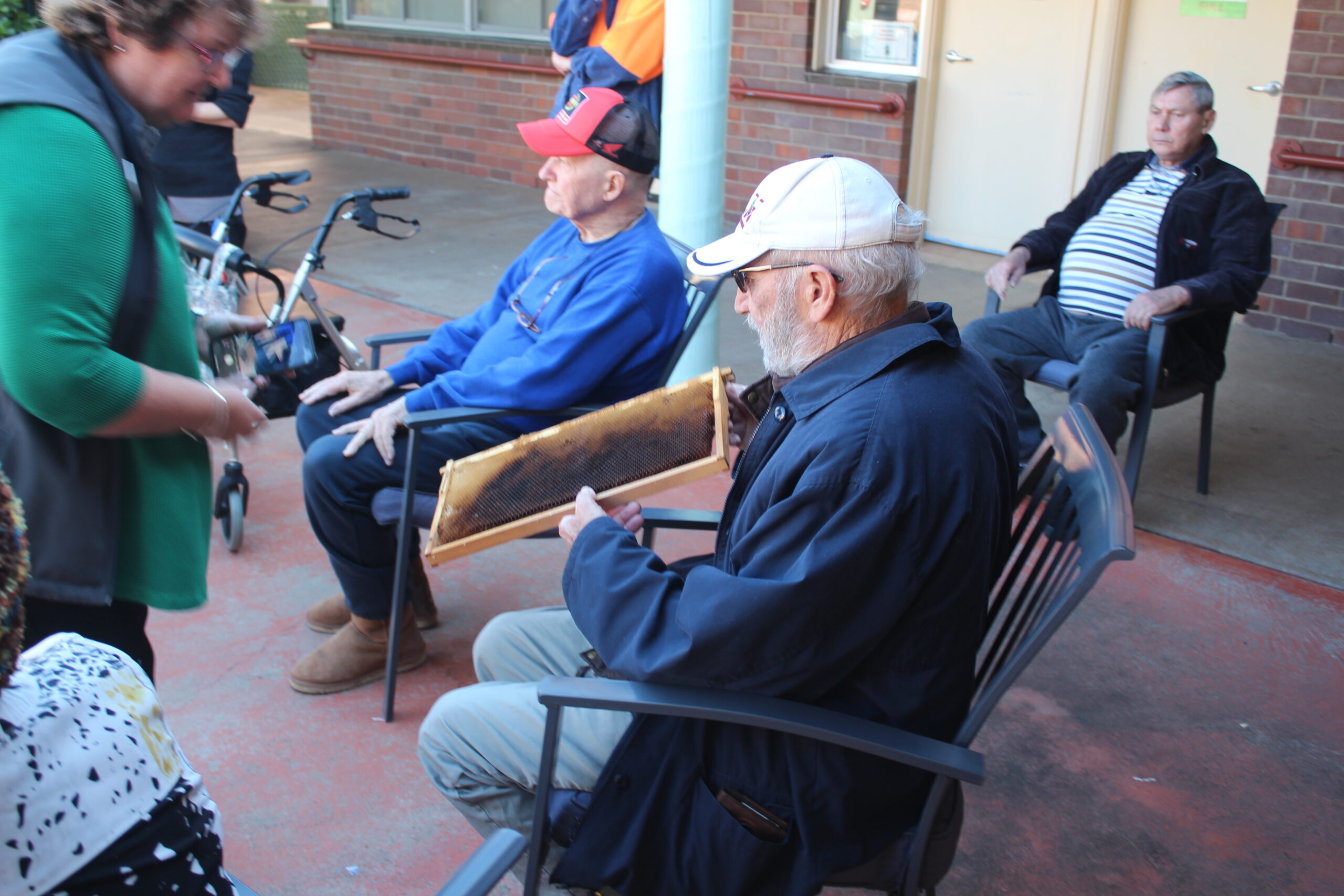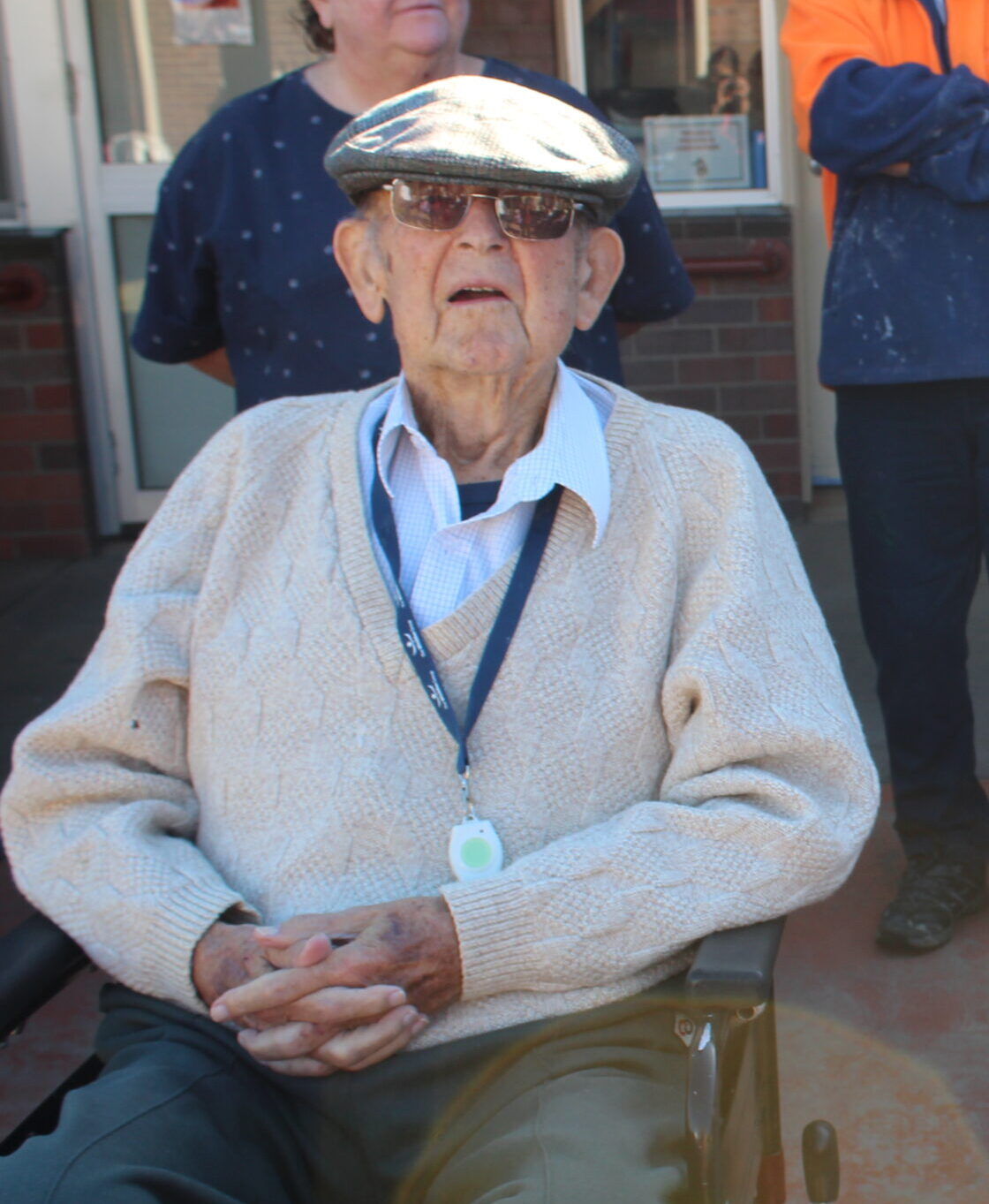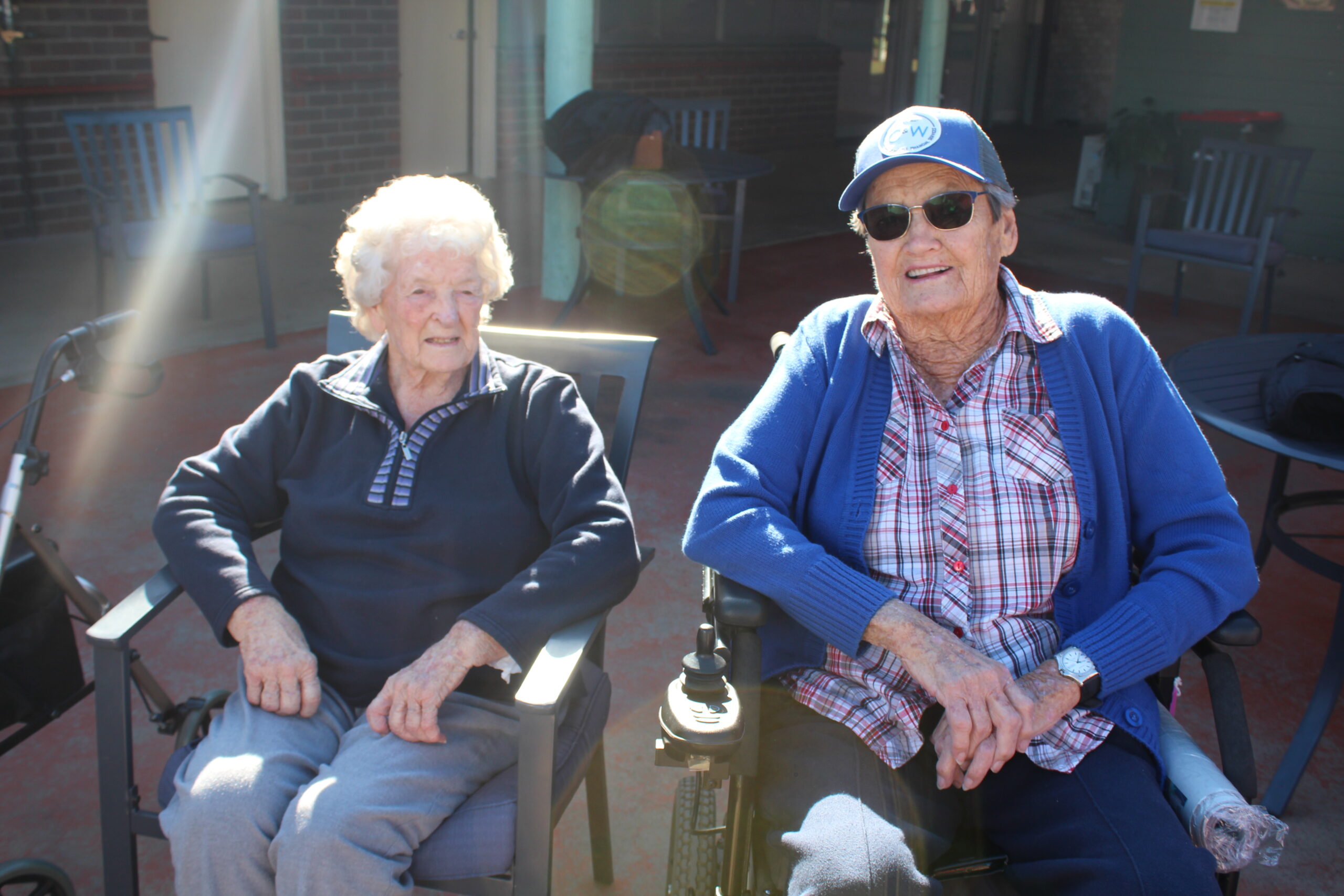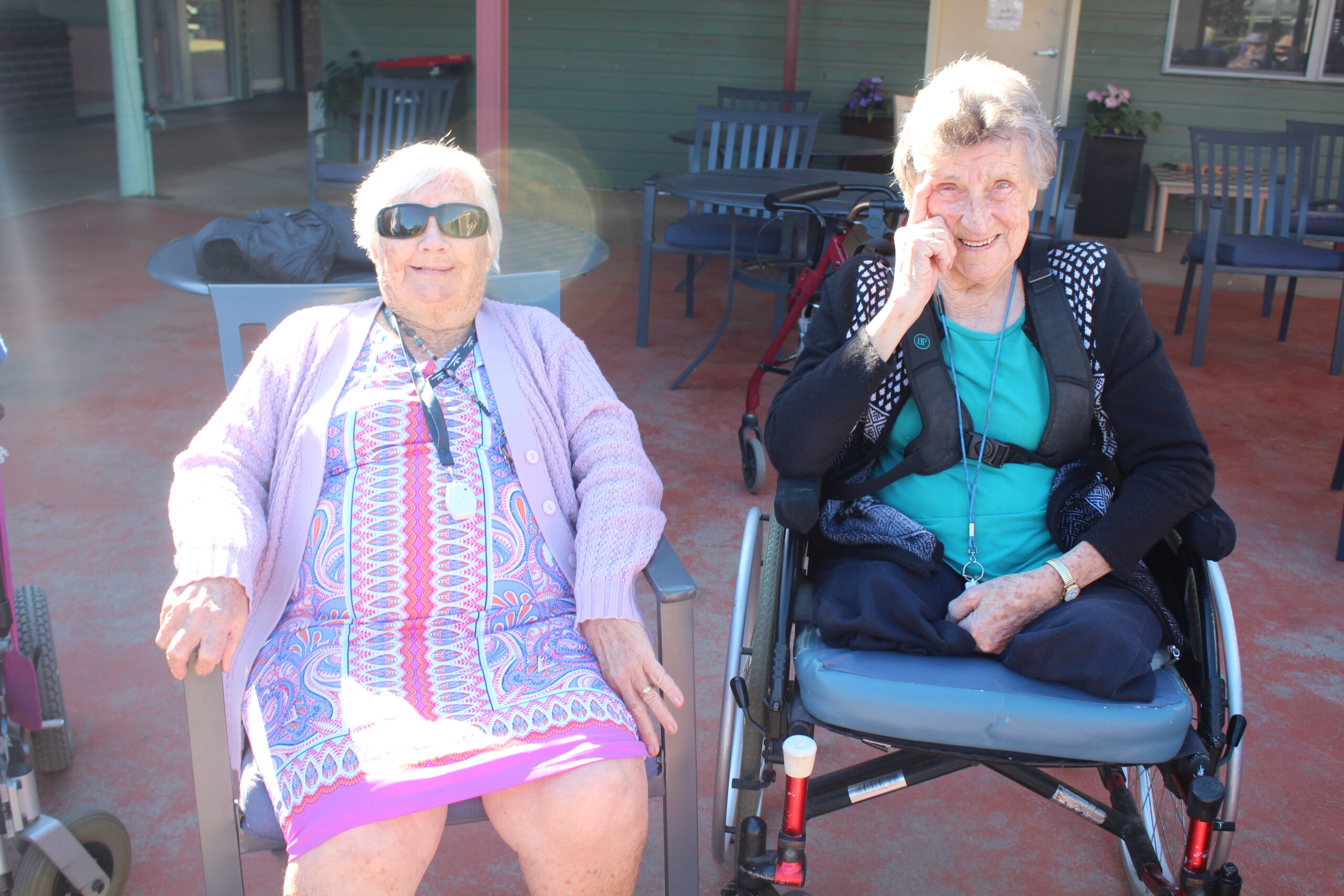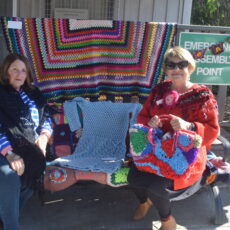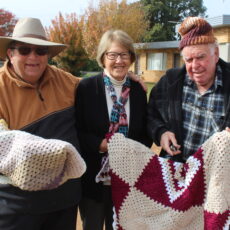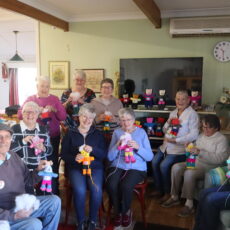Whiddon Group residents from Robert Young and Jessie Hunt celebrated World Bee Day recently.
Local beekeeper and founder of Mapstone Apiaries, Dan Mapstone, gave up part of his morning to deliver a presentation on the creatures.
With him, he brought along his beekeeping suit, waxed frames, smoker and a small box of live bees.
Mr Mapstone put on the suit, explaining the importance of proper protection when dealing with bees, and passed around one of the hive frames for the audience to see the wax formations that have been created by the insects.
He then spoke about the honey harvesting process, and the role the smoker plays.
“This tool mimics bushfire smoke and disables the bees’ attack response, so we can safely take the honey,” Mr Mapstone said.
“Which just requires locating and moving the queen because the other bees will follow her outside of the hive.”
A couple of other local bees soon gathered near the equipment, following their keen sense of sight and smell towards the wax on the frames.
“Bees have a forage range of anywhere from three to five kilometres, so these few probably live in a hive somewhere in town,” Mr Mapstone said.
He spoke about everything he’s learnt as a bee breeder, honey farmer and business owner.
“Raw honey contains plenty of pollen, so eating it can help you build up your immune system if you suffer from allergies,” Mr Mapstone said.
“It’s especially effective if you’re consuming honey from the local area because the pollen you’re eating is from plants in the area.”
“I used to suffer from hay fever but haven’t experienced it since I started beekeeping.”
Mr Mapstone also explained the difference between raw honey and commercial honey.
“The products you buy from the supermarket are all heat treated, which is essentially like pasteurising the honey,” he said.
“But I use a centrafuse to collect my honey, so the product remains raw and natural.”
“The good thing about honey is that it won’t expire, so whichever kind you buy will last forever.”
After his presentation Mr Mapstone answered questions from the residents.
The crowd had plenty of queries for the beekeeper, with stings being one particular area of interest.
“I’ve been stung plenty of times,” Mr Mapstone answered.
“The human body can actually withstand about 1000 stings at once.”
“But it only hurts for about a minute and my skin doesn’t react much anymore since I’m so used to it.”
He then told the audience how to correctly remove the stinger, if they are attacked by a bee.
“You don’t want to pull or pick at it from the top because this can release more venom,” Mr Mapstone said.
“Just take your nail and push it out from a spot next to where you were stung, the stinger should pop right out.”
After Mr Mapstone finished his presentation, the crowd thanked him with a round of applause.
The Robert Young and Jessie Hunt residents then enjoyed a morning tea together in lovely sunny conditions.
Read more stories like this:
- Local enthusiast Dan Mapstone shares the buzz on beekeeping
- Fun in the sun for Whiddon Group residents | PHOTOS
- Whiddon holds ‘Understanding Home Care’ information sessions


